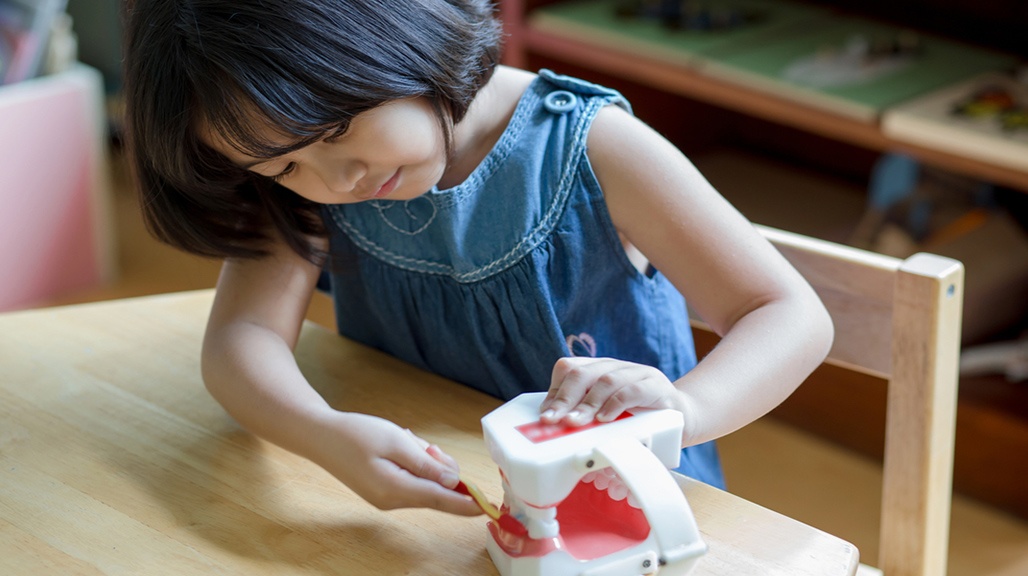Your Child’s First Visit To The Dentist
 Contributed by
Louisa Lee
October 25, 2016
Contributed by
Louisa Lee
October 25, 2016

Regular dental visits (at least twice a year) are ideal to ensure that your child not only remains cavity free and receives adequate hygiene instructions to maintain healthy gums, but is also monitored for their dental development especially as they begin to grow permanent teeth.
Early detection of dental problems also typically translates to a more comfortable and affordable treatment for your child.
It is generally recommended for parents to bring their child in for his/her first dental visit at around the age of one to two years old when he/she would be close to having, or already has, the full set of milk teeth (20 in total). Getting an early start in regular dental visits not only establishes healthy lifetime habits, but also minimizes dental fear in your child. The first visit is usually kept fun, non-threatening, and interactive, with the main focus being to acquaint your child with the dental team as well as sights and sounds of the tools and equipment.
Tips On Preparing Your Child For The First Dental Visit:
1. Choose an appointment time when your child is fresh and alert – usually mornings.
2. Talk to your child about the importance of healthy teeth and oral hygiene early on, and set an example by having them observe you brushing and flossing properly.
3. Try ‘playing dentist’ with your child, taking turns to look into each other’s mouths using toothbrushes and flashlights to count teeth, for you to help in their understanding of the dental examination process.
4. Explain to your child what the dentist would do and reassure him/her that you would be present throughout the whole visit. Have your child voice out any fears, and provide encouragement. Bring along his/her favourite toy for that extra security if needed.
5. Consider reading your child a book about a character having a pleasant dental visit – your dental clinic may have one available.
6. Take note of not passing on any personal anxieties or fears to your child as many parents who are averse to dental visits themselves may transmit negative messages to their children. Avoid using negative words such as ‘pain’, ‘needles’, or ‘drill’, to maintain positivity.
What Should You Expect At The Dentist?
The dentist will carry out a gentle examination of your child’s oral conditions, followed by taking some photographs and x-rays if necessary – for instance, to diagnose dental decay or to identify developmental abnormalities. This will be followed by comprehensive discussion on findings and the need for further treatment if any, as well as advice on proper dietary and tooth care habits with you to guide your child’s dental health in the right direction.
Treatment may range from the more basic polishing (and scaling) of your child’s teeth, fillings for small to moderate sized cavities, to more complex procedures such as silver crowns and root canal treatments for larger decays. If the alignment of your child’s teeth and jaws is a concern, interceptive orthodontics using appliance therapy may also be considered.
For children with more extensive dental needs, a specialist referral or even indication for treatment under general anaesthesia may be advised, especially if they are very young, anxious, and/or uncooperative in the chair.
Visit the DP Dental page to find out more about Louisa’s work.
This post was first published on DP Dental blog and has been reposted on Executive Lifestyle with the permission of the author.
Image credit: Shutterstock
Edited by Michelle Sarthou
Did you enjoy this post? Please comment, like and share!











Sorry, the comment form is closed at this time.